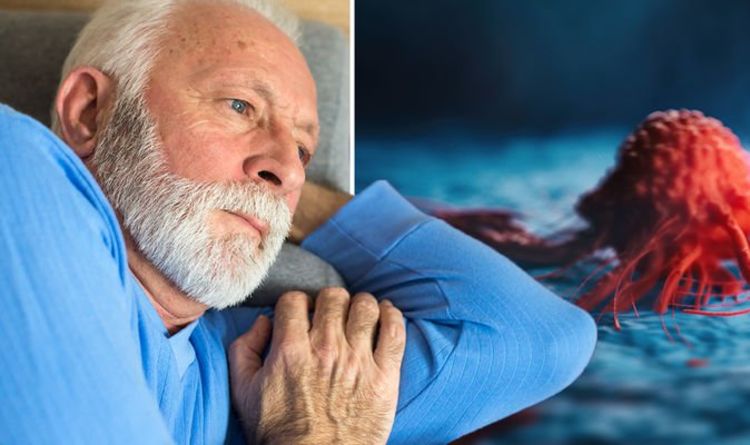Cancer: The warning sign when you wake up in the morning – ‘the most troubling symptom’
Cancer symptoms: Top 14 early signs to look out for
We use your sign-up to provide content in ways you’ve consented to and to improve our understanding of you. This may include adverts from us and 3rd parties based on our understanding. You can unsubscribe at any time. More info
Cancer outcomes depend on how quickly cancer is detected in the body. That’s because cancerous cells spread if they are not caught in time. Impeding this effort is the often nondescript nature of symptoms.
It is easy to brush aside unexplained bodily changes but they can often be an early sign of cancer.
Fatigue is often the “most troubling symptom” of cancer, warns Cancer Research UK.
Fatigue means feeling very tired, exhausted and lacking energy. It can be a symptom of the cancer itself or a side effect of treatment.
“How long it lasts, the degree of severity and how often you might have it is different from person to person,” explains Cancer Research UK.

According to the charity, finding it hard to get up in the morning is often a telltale sign of fatigue.
Other signs of fatigue include:
- Lack of energy – you may just want to stay in bed all day
- Feeling you just cannot be bothered to do much
- Sleeping problems such as unable to sleep or disturbed sleep
- Feeling anxious, sad or depressed
- Pain in your muscles – you may find it hard to climb stairs or walk short distances
- Being breathless after doing small tasks, like having a shower or making your bed
- Finding it hard to concentrate, even just watching TV or talking to a good friend
- Finding it hard to think clearly or make decisions easily
- Loss of interest in doing things you usually enjoy
- Negative feelings about yourself and others.
Other general symptoms of cancer include a lump that suddenly appears on your body, unexplained bleeding and changes to your bowel habits.
In many cases your symptoms will not be related to cancer and will be caused by other, non-cancerous health conditions.
DON’T MISS
Covid: The activity that makes you ‘twice’ as likely to catch it [INSIGHT]
High cholesterol: Symptoms to spot on your face – doctor [ADVICE]
Live longer: The warm drink which protects against heart disease [TIPS
“Although it’s unlikely to be cancer, it’s important to speak to a GP so they can investigate,” advises the NHS.
The health body continues: “If your GP suspects cancer, they’ll refer you to a specialist – usually within two weeks.”
To contact your GP surgery:
- Visit their website
- Use the NHS App
- Call them.
Am I at risk?
The exact cause of bowel cancer is unknown. However, research has shown several factors may make you more likely to develop it.

A large body of evidence suggests a diet high in red and processed meat can increase your risk of developing bowel cancer.
For this reason, the Department of Health and Social Care recommends that people who eat more than 90g (cooked weight) a day of red and processed meat should cut down to 70g a day.
The gravest modifiable risk factor for cancer is smoking, which causes more than seven in 10 lung cancer cases in the UK.
Even smoking less than one cigarette per day is harmful. One study found that it significantly increases the risk of dying early compared with people who have never smoked.

There are a number of risk factors you cannot modify.
“Cancer can develop at any age. But as we get older, most types of cancer become more common,” explains Cancer Research UK.
According to the charity, this is because our cells can get damaged over time.
“This damage can then build up as we age, and can sometimes lead to cancer.”
Source: Read Full Article



